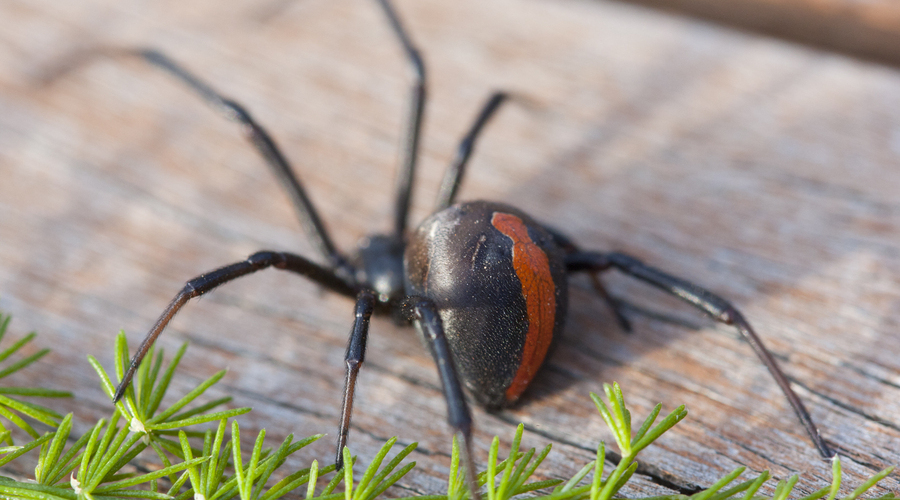How to Prevent Spiders
Prevent Spider Infestations – Tips and Tricks
Finding spiders and spiderwebs creeping around your house can be downright creepy. While most common house spiders are harmless to humans, no one wants these crawly critters invading their living spaces and building messy cobwebs in every corner.
The good news is there are many effective ways to deter, repel and prevent spiders from moving into and infesting your home.
With some simple proactive measures and spider deterrents, you can keep these unwanted pests under control and enjoy a spider-free house all year round.
Why Spiders Are Attracted to Houses
Before exploring how to keep spiders away, it helps to understand what attracts them to homes in the first place. Spider invasions usually occur for the following reasons:
- Food sources – Spiders prey on other insects like flies, mosquitoes, ants and cockroaches. If these bugs make their way indoors, spiders will follow to feed on them.
- Cracks and crevices – Gaps or holes in your home’s foundation, walls, or doors provide perfect entry points for spiders. Small cracks also offer ideal spots to hide and build webs once inside.
- Clutter – Messy cluttered areas with lots of stuff piled up or stacked against walls offer prime real estate for web building. Unorganized garages, crowded closets and dank basements are spider magnets.
- Dark undisturbed spaces – Spiders prefer dark, secluded, undisturbed places to spin their sticky webs and lay eggs. Attics, crawl spaces, garages and sheds often become infested if dark and neglected.
Keep a Clean, Clutter-Free House
One of the most effective ways to discourage spiders from moving in is to keep your home clean and free of clutter. Regular vacuuming, mopping, dusting and decluttering removes spider access points and deters web building.
Vacuum all floors, corners, baseboards, vents, and ceilings to remove any webs and egg sacs. Dust frequently uses spaces like countertops, shelves, and tabletops. Don’t allow dishes to pile up in the kitchen sink, as they attract ants or flies that spiders prey on.
Keep bathrooms free of clutter and quickly fix any leaks. Do laundry frequently so it doesn’t pile up around the house. Store items neatly in closets, cabinets, and drawers so there are no stacks of boxes, papers, or other clutter against the walls.
Clean out the garage and get rid of any clutter, stacks of cardboard, piles of magazines or old furniture. Trim back tree branches and bushes so they don’t touch the walls. Keep grass mowed and leaves raked away from the house’s foundation.
Seal Up Cracks, Crevices and Other Entry Points
Inspect the interior and exterior of your home for any cracks, crevices or openings that provide access for spiders. Use caulk to thoroughly seal gaps around doors, pipes, vents, utilities, air conditioners and anywhere else spiders could enter.
Install weatherstripping under doors and garage door seals if needed. Repair damaged window screens that spiders could easily crawl through. Cover up exterior vents with fine mesh metal screening to prevent spider access.
Check for foundation cracks or gaps around the base of the house, and fill them in with caulk or concrete. This helps keep spiders and other bugs from crawling inside basements or crawl space access areas. A sealed perimeter is key to preventing spider invasions.
Use Natural Repellents
Certain strong natural scents deter spiders and can be used to keep them out of your house. Try these effective spider repelling techniques:
- Peppermint oil – The strong, minty aroma of this oil repels spiders. Mix 15-20 drops into a spray bottle filled with water. Lightly sprinkle the corners of rooms, door frames, and any other areas.
- Citrus peels – Place dried citrus orange and lemon peels in small bowls around the house. Spiders dislike the citrusy smell.
- Vinegar – Wipe surfaces down with equal parts white vinegar and water. The vinegar scent dissipates after drying but deters spiders while wet.
- Eucalyptus oil – The woodsy, medicinal fragrance of eucalyptus oil drives spiders away. Place a few drops on cotton and stash them near baseboards and other infested zones.
- Bay leaves – Scatter fresh bay leaves in window, countertops, under appliances and other spider-prone areas.
Keep Your Home Well-Lit
Since spiders prefer dark, secluded spaces, keeping your home brightly lit deters them from moving in. Install lighting in stairwells, basements, attics, crawl spaces, garages and sheds. Replace burnt out light bulbs right away.
Keep exterior lights on at night by doors, garage, deck, patio and yard. Motion sensor lights also help scare away night-time spider activity. Close blinds and curtains at night to minimize interior dark spaces.
Apply Chemical Spider Treatments If Needed
For severe spider invasions, pesticide sprays and insecticides may be required to fully eliminate them. Here are some chemical spider treatment options:
- Indoor spider sprays –Products like Raid House and Garden Spray kill spiders and provide residual protection by keeping them away. Focus on corners, along walls, under furniture, and anywhere you see spider webs.
- Outdoor barrier sprays – Long-lasting chemical concentrates create a protective spider-free zone around the perimeter of your home when sprayed. They deter spiders from entering.
- Professional pest control – For large-scale spider takeovers, hire a pest management professional. They have commercial-grade insecticides and can access hard-to-reach infested areas.
Conclusion
Staying vigilant is key when trying to keep spiders at bay.
Inspect your home often, inside and out, for any signs of webs or spider activity. Apply natural repellents monthly and re-caulk or spray chemical deterrents if infestations occur.
With some consistent prevention tactics, you can safely defend your space against spider invasions.



